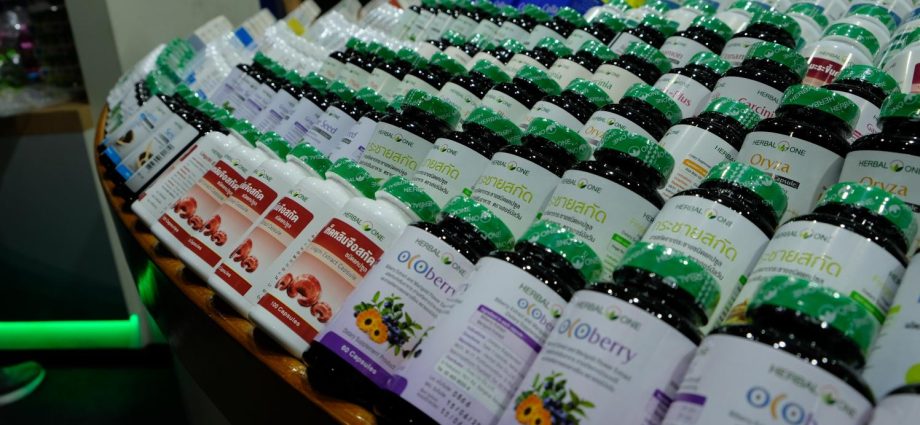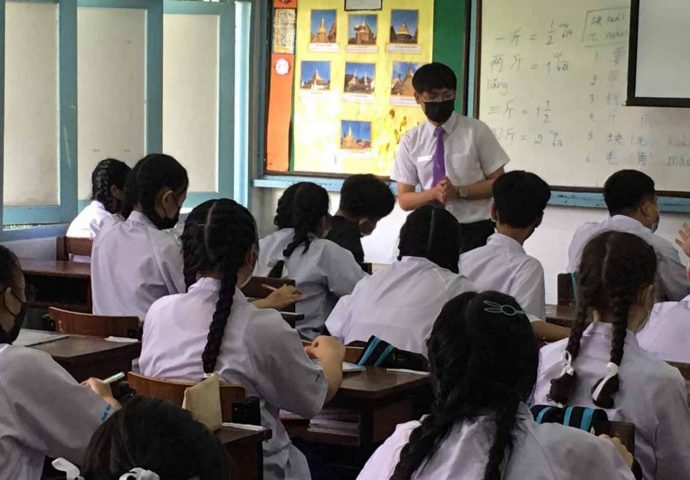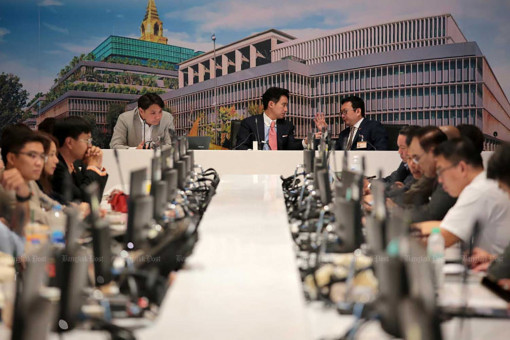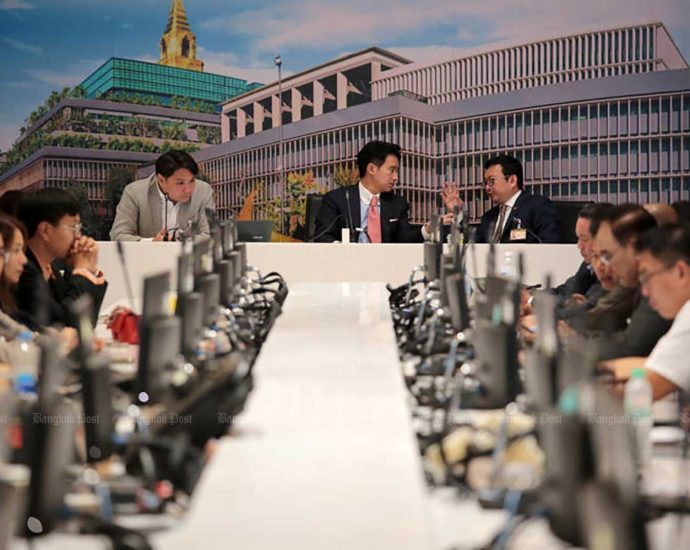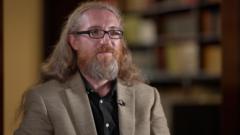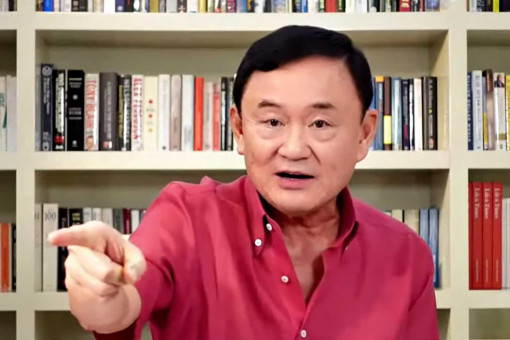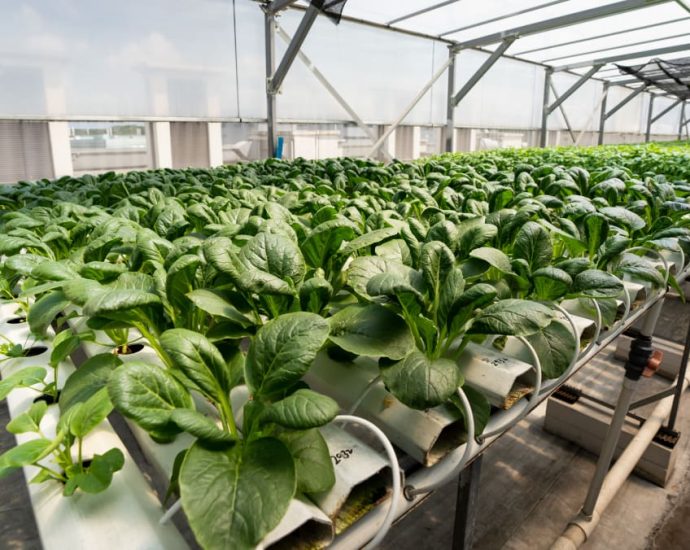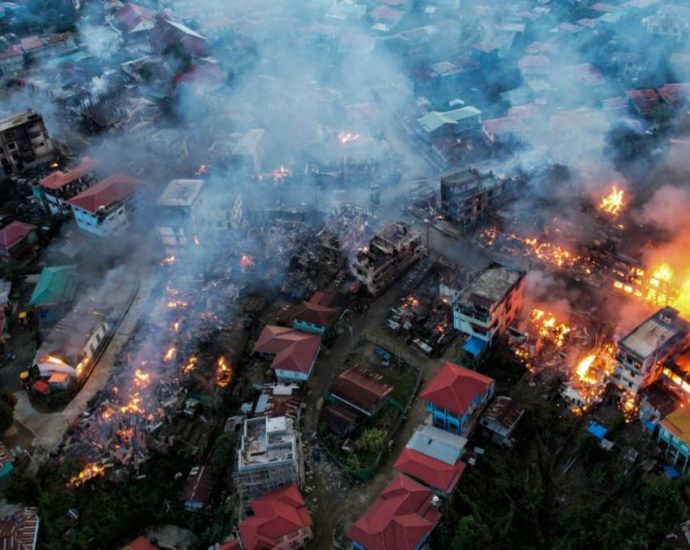Herbal medicine a worthy alternative

Crisis has turned into opportunity for Thai traditional medicine (TTM) as it has made wider inroads into the treatment of patients following the Covid-19 pandemic.
The definition of Thainess can be intertwined with various concepts from religious beliefs down to street food, and TTM is quickly gaining ground as an integral element of Thai culture, observers say.
Traditional medicine offers alternative treatments using diverse traditional herbs.
The 20th National Herbs Expo, hosted by the Ministry of Public Health from June 28 to July 2, showed use of Thai herbs has surged following the pandemic, just as industry professionals have claimed.
Despite some lingering scepticism surrounding herbal remedies, the expo drew numerous experts, entrepreneurs and visitors. It set the stage for people in the industry to exchange their knowledge and experience on the wonders of Thai traditional medicine.
Prior to the Covid-19 pandemic, herbs were mainly considered a dietary supplement or food rather than medicine, and the majority of TTM users were elders.
However, during the height of the pandemic stocks of medicine were limited as people began stocking up on medicine when the nation’s borders closed, resulting in a shortage of many modern medicines on which the country was heavily reliant.
Dr Pakakrong Kwankhao, head of the Thai Traditional and Herbal Medicine Centre at Chao Phya Abhaibhubejhr Hospital, said the shortage of modern medicine during the pandemic forced a shift in people’s attitude towards traditional treatment.
Dr Pakakrong noticed an increase in younger herbal medicine users as news spread about traditional herbs’ medicinal properties and their ability, in the eyes of some, to help prevent and treat Covid-19. More patients recovered using traditional herbs, which became an alternative to modern medicine.
According to Adisorn Pukanad of the Thai Traditional Medicine Foundation, TTM is easily accessible. Patients do not have to visit the hospital or need a doctor’s prescription to obtain the medicine.
“Although the efficacy may be lower, it is friendlier to health,” he said.
Herbal medicine is also consumed with greater ease in the form of capsules.
According to Herbal One company, which sells herbal medicinal products, most consumers aged 30 and above are starting to acknowledge the effectiveness of the capsules, along with their comparative advantages in price and convenience.
“Thai herbs don’t produce severe side effects because they are from nature. They come in several forms such as medicine, food, cosmetics,” he said, noting that modern medicine has a specific use and is designed mainly for treatment.
The TTM isn’t limited to consuma- bles.
Jua Inthan, a traditional massage therapist, said the herbal mixture contained in the luk prakob (herbal compress ball), a mainstay for massaging a person, can both be therapeutic and soothing. The balls are steamed before use.
The liquid from the herb can seep out of the luk prakob during massage and gets absorbed into the pores of the skin. That, coupled with the warm luk prakbo, is believed to enhance blood circulation, she said.
As the number of TTM users expanded, so did initial doubts about their efficacy and health safety.
Critics arguing against the TTM’s efficacy cited insufficient scientific evidence and laboratory findings for some herbal cures.

Shoppers look for bargains at the recent 20th National Herbs Expo hosted by the Ministry of Public Health. Thai medicinal herbs have gained in popularity over the years as an alternative treatment for patients with various ailments. Photos supplied by the expo
According to the critics, most of the knowledge about traditional herbs is derived from practitioners’ experience and often unverified historical records.
Dr Pakakrong said that 40 years ago, herbal doctors only accounted for about 2–3% of all medical professionals. The rest were modern doctors.
Herbs assumed the status of garden vegetables unworthy of being developed into health-safe and reliable medicinal products, so had an almost non-existent place in the hospital treatment of patients. In addition, medical schools primarily teach medical lessons rooted in Western knowledge.
At the Chaophraya Abhaibhubejhr Hospital, a group of professionals is conducting research to support the efficacy of herbs to cure diseases. Currently, the hospital is utilising herbs to treat patients with sleeping disorder and some chronic conditions.
To meet surging demand for herbal medicine, many hospitals and firms are collaborating with local farms to grow more herbs. The herbs that are not suitable for cultivation in a tropical climate will be purchased through import wholesalers.
In the promotion of Thai herbs overseas, the Department of Medical Science (DMS) has been conducting laboratory work to study the safety of herbs for consumers. The work focuses on the genetic toxicity of herbs under the Organization for Economic Co-Operation and Development and Good Laboratory Practice guidelines.
Patamaporn Prueksakorn, a pharmacist at the DMS, said a thorough study and lab certification will be a boon to the commercial promotion and sales of Thai herbs overseas. This is because the herbs will not have to undergo quality checks at the destination countries again.
Recognising the value of Thai herbal medicine, the Ministry of Public Health established the Department of Thai Traditional and Alternative Medicine in 2002. Its purpose is to preserve and promote traditional Thai healing methods while integrating Thai medicine into the modern healthcare system.
Fund helps youth enjoy bright future
Chiang Mai graduate grateful for Post’s support

Chainarong Maneewong, 23, intends to pursue a career in teaching after completing his university education thanks to a scholarship he received from the Bangkok Post Foundation.
Graduating in Thai language from Chiang Mai University’s faculty of education in April, he now wants to fulfil his childhood dream of becoming a teacher at a school in his home province of Chiang Mai.
He said he intends to apply his knowledge as a teacher to educate needy children and find scholarships to support their education so they can also make their dreams come true.
His father made a living driving a red taxi pickup truck and his mother works as a shop assistant at a jewellery shop in the northern province. ”My father earned about 15,000 baht a month while my mother received a monthly salary of 10,000 baht.
“My father died when I was 17-18 so my mother had to take care of my elder brother and me alone,” Mr Chainarong said.
”After finishing high school at Mathayom 6 level, my brother ended his education. He chose to find work to earn money to help my mother support my own education.
”I came top in the Thai University Centre Admission System (TCAS) exams for Chiang Mai University’s faculty of education. I want to become a teacher of Thai language,” he said.
Upon his admission to the university, he looked for a scholarship and university officials suggested he apply for one with the Bangkok Post Foundation.
Shortly after application, foundation officials came to interview him and his mother before agreeing to sponsor his five-year education programme.
”The foundation gives me 60,000 baht each year to pay my education fees, my dormitory rent and my personal expenses.” he said, adding he also performs Thai traditional music in public places in downtown Chiang Mai on weekends to earn extra.
”My friends and I belong to the university’s Thai traditional music club and we play in walking streets in central Chiang Mai at the weekend. We earn about 4,000 baht a month,” he said.
”That is enough for our personal expenses. We don’t drink or smoke and don’t visit pubs so we don’t waste money on such activities,” he said.
Mr Chainarong said he is grateful for the financial assistance he received from the Bangkok Post Foundation.
”Foundation officials coordinate with the university in terms of screening students who apply and following up on scholarship recipients to keep track of how they are doing,” he said.
”I once asked the foundation whether it was possible to change faculty and the foundation said it was willing to help coordinate with other faculties,” he said.
”Some scholarships are only granted on a yearly basis so recipients may worry about the prospects of securing future funds.
”But the Bangkok Post Foundation supports our education until we graduate. Without such worries, students can concentrate fully on their studies. It is a decent foundation. It also provides career counselling,” he said.
Mr Chainarong said he took the TOEIC and is now applying for a teaching job at a local school under the Office of the Basic Education Commission, in Chiang Mai.
”I am proud of myself after graduating thanks to a scholarship from the Bangkok Post Foundation. My family is also proud of me. I want to give back to society by becoming a teacher to help other children enjoy a bright future.
”I am also keen to be part of efforts to set up an education fund to offer scholarships to students to help ease their families’ financial burdens so they can focus fully on their studies,” Mr Chainarong said.
In addition to supporting schools affected by natural disasters, the Bangkok Post Foundation has sponsored the education of several hundred needy students since its inception.
Established in 1982 with an initial funding of 500,000 baht provided by the Post Publishing Company Limited, the foundation’s main objective was to give children from poor families the same opportunity to attend school as other Thai children.
The foundation has so far awarded about 3,900 scholarships and seen 750 needy students, including orphans and children with disabilities, graduate from universities and vocational colleges thanks to its financial support.
Nevertheless, in order to continue to pursue its original goal providing assistance to those who need it most, additional funds and more donations are needed to ensure that future recipients can continue to enjoy the same assurances.
Election-winning Move Forward calm amid rejig buzz
Pheu Thai PM choice set for Friday vote

The election-winning Move Forward Party (MFP) has dismissed speculation it will be excluded from a new government led by Pheu Thai, the party that came second, insisting that unity among the eight prospective coalition parties remains intact.
According to sources, the latest possible configuration of a new government has emerged, still comprising the original coalition allies but with the Bhumjaithai and Chartthaipattana parties also invited to join. The Palang Pracharath Party (PPRP) and the United Thai Nation Party (UTN) would remain excluded.
In this scenario, Srettha Thavisin, a PM candidate of Pheu Thai, would be nominated for the upcoming vote in parliament on Friday.
With the support of 71 MPs from Bhumjaithai and 10 from Chartthaipattana as well as the 312 MPs from the original eight-party bloc, Mr Srettha would get 393 votes which would be more than enough to see him become the next prime minister.
Under the constitution, a PM candidate needs the support of at least half of the 750 members of both the lower and upper chambers of parliament, or 376 votes in total.
However, observers believe that if Bhumjaithai, which is at odds with the MFP, joined the coalition, the MFP would decide to break away from the bloc and become the opposition but would still vote for the PM candidate from Pheu Thai.
The MFP has previously filed complaints against cabinet ministers from Bhumjaithai, accusing them in a no-confidence debate of corruption, while Bhumjaithai has made it clear it will not join a government if the MFP is part of it, citing the MFP’s bid to amend Section 112 of the Criminal Code, or the lese majeste law.
However, if the MFP pulls out of the coalition, Pheu Thai may again invite the PPRP, as well as the Democrat Party and the UTN to join the coalition, according to observers.
That said, Rangsiman Rome, MFP list MP and spokesman, downplayed a report that Pheu Thai would let Bhumjaithai take charge of forming a government without the MFP but with the UTN and PPRP asked to take part.
Mr Rangsiman said Bhumjaithai did not win the most seats in parliament and lacked the legitimacy to form a government.
“If Bhumjathai can form a government, this will deviate from normal circumstances…If we discussed politics on the basis of the people’s wishes, Bhumjaithai would not have a chance [of forming a government],” he said.
Wiroj Lakkhanaadisorn, an MFP list MP, also posted on Facebook that he did not believe a rumour that Pheu Thai would boot the MFP out of the coalition, saying it was meant to undermine the trust and unity among the eight parties.
“I don’t believe that Pheu Thai would force the MFP into the opposition bloc along with the UTN and the PPRP, and forge an alliance with Bhumjaithai, the Democrats, Prachachart, Chartthaipattana and other parties to form a government with a combined 262 members of parliament just to get support from the senators.”
Meanwhile, Pheu Thai secretary-general Prasert Chantararuangthong said on Sunday the coalition allies will discuss their stance ahead of the PM vote on Friday.
Wisut Chai-narun, a Pheu Thai MP for Phayao, said Mr Srettha is expected to be nominated for the vote and likely to get enough support to become prime minister.
Parliament president Wan Muhamad Noor Matha previously said parliament would convene on Aug 4, but whether the new vote for a prime minister takes place that day will depend on a decision by the Constitutional Court the day before.
The court will announce if it is to accept a petition regarding the rejected renomination of MFP leader Pita Limjaroenrat as prime minister. If accepted, the vote will not occur until the court’s ruling, Mr Wan said.
Waste blamed for Koh Lan’s green waters
Plankton bloom pose no harm to humans
PUBLISHED : 31 Jul 2023 at 06:21

CHON BURI: Wastewater discharged from Koh Lan is the major cause of the plankton bloom that turned the sea smelly and green, said the Department of Marine and Coastal Resources (DMCR) on Sunday.
The DMCR inspection at Ta Waen Beach on Koh Lan came after the Facebook page “We Love Pattaya” posted pictures of unusually green seawater around the popular island, which is located 7 kilometres off the coast of Pattaya Beach.
According to DMCR deputy director Apichai Aekwanakul, the phenomenon was first spotted on Saturday and authorities advised against swimming due to the reduced visibility.
Mr Apichai said that the colour change is caused by Noctiluca scintillans, a phytoplankton that is non-toxic and normally found in an annual bloom along the eastern seaboard.
Continuous wastewater discharging into the sea on Koh Lan is believed to be the primary cause, he said.
Mr Apichai explained that the bloom tended to be stronger in the rainy season as downpours tend to wash nitrogen and phosphorus from wastewater into the aquatic system and cause excessive growth of the plankton, leading to the green colour and unpleasant odour.
The DMCR and related agencies will investigate and conduct further research possible health problems and the need for warnings to be issued, he said.
The plankton bloom, along with the off-season spawning of leatherback turtles in Phuket, are both oceanic phenomena that lecturer Thon Thamrongnawasawat from Kasetsart University’s Faculty of Fisheries suggested those interested in the environment keep an eye on closely.
According to a post made on his Facebook page, both are symptomatic of changes to the marine environment caused by natural fluctuations and human activity.
Regarding the plankton bloom, Mr Thon said that it was abnormal to see the phenomenon during the period when the impact of El Nino is about to intensify.
Normally a decline in rainfall would lower the chances of plankton bloom occurring, according to Mr Thon, yet the opposite has been observed this year, especially along the Eastern Economic Corridor (EEC) in the upper part of the Gulf of Thailand.
This abnormality is becoming more frequent due to global “boiling”, as defined by the United Nations recently, and Mr Thon added that the plankton bloom might affect tourism, especially in high season.
MFP calm amid rejig buzz
Pheu Thai PM choice set for Friday vote

The Move Forward Party (MFP) has dismissed speculation it will be excluded from a new government led by the Pheu Thai Party, insisting that unity among the eight prospective coalition parties remains intact.
According to sources, the latest possible configuration of a new government has emerged, still comprising the original coalition allies but with the Bhumjaithai and Chartthaipattana parties also invited to join. The Palang Pracharath Party (PPRP) and the United Thai Nation Party (UTN) would remain excluded.
In this scenario, Srettha Thavisin, a PM candidate of Pheu Thai, would be nominated for the upcoming vote in parliament on Friday.
With the support of 71 MPs from Bhumjaithai and 10 from Chartthaipattana as well as the 312 MPs from the original eight-party bloc, Mr Srettha would get 393 votes which would be more than enough to see him become the next prime minister.
Under the constitution, a PM candidate needs the support of at least half of the 750 members of both the lower and upper chambers of parliament, or 376 votes in total.
However, observers believe that if Bhumjaithai, which is at odds with the MFP, joined the coalition, the MFP would decide to break away from the bloc and become the opposition but would still vote for the PM candidate from Pheu Thai.
The MFP has previously filed complaints against cabinet ministers from Bhumjaithai, accusing them in a no-confidence debate of corruption, while Bhumjaithai has made it clear it will not join a government if the MFP is part of it, citing the MFP’s bid to amend Section 112 of the Criminal Code, or the lese majeste law.
However, if the MFP pulls out of the coalition, Pheu Thai may again invite the PPRP, as well as the Democrat Party and the UTN to join the coalition, according to observers.
That said, Rangsiman Rome, MFP list MP and spokesman, downplayed a report that Pheu Thai would let Bhumjaithai take charge of forming a government without the MFP but with the UTN and PPRP asked to take part.
Mr Rangsiman said Bhumjaithai did not win the most seats in parliament and lacked the legitimacy to form a government.
“If Bhumjathai can form a government, this will deviate from normal circumstances…If we discussed politics on the basis of the people’s wishes, Bhumjaithai would not have a chance [of forming a government],” he said.
Wiroj Lakkhanaadisorn, an MFP list MP, also posted on Facebook that he did not believe a rumour that Pheu Thai would boot the MFP out of the coalition, saying it was meant to undermine the trust and unity among the eight parties.
“I don’t believe that Pheu Thai would force the MFP into the opposition bloc along with the UTN and the PPRP, and forge an alliance with Bhumjaithai, the Democrats, Prachachart, Chartthaipattana and other parties to form a government with a combined 262 members of parliament just to get support from the senators.”
Meanwhile, Pheu Thai secretary-general Prasert Chantararuangthong said on Sunday the coalition allies will discuss their stance ahead of the PM vote on Friday.
Wisut Chai-narun, a Pheu Thai MP for Phayao, said Mr Srettha is expected to be nominated for the vote and likely to get enough support to become prime minister.
Parliament president Wan Muhamad Noor Matha previously said parliament would convene on Aug 4, but whether the new vote for a prime minister takes place that day will depend on a decision by the Constitutional Court the day before.
The court will announce if it is to accept a petition regarding the rejected renomination of MFP leader Pita Limjaroenrat as prime minister. If accepted, the vote will not occur until the court’s ruling, Mr Wan said.
China using families as ‘hostages’ to quash dissent abroad
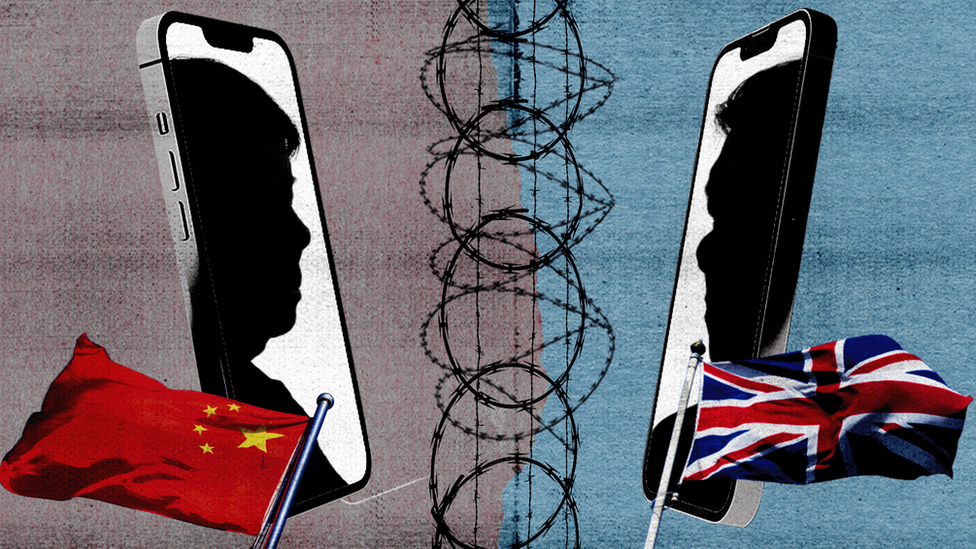
China is pressuring Uyghurs living abroad to spy on human rights campaigners by threatening families back home, researchers say. Refugees and activists tell the BBC intimidating tactics are tearing communities apart.
“My dearest son,” said Alim’s mother as she flickered into view. “I didn’t think I’d see you before I died.”
Alim – not his real name – says he was overcome by the moment. The reunion over a video call was their first contact in six years, since he fled as a refugee to the UK.
But it was bittersweet: someone else was in control of the call. Like all Uyghurs – a mostly Muslim minority from north-western China – Alim’s mother lives under intense surveillance and control. They could never call each other directly.
Instead, a middleman phoned Alim and his mother from two separate mobiles. He held the phone screens to face each other, so the pair could see wobbly images of each other – and hear muffled sound from the speakers.
Alim says they barely spoke, and spent most of the call in tears.
He doesn’t know if the plain white wall he could see behind his mother was in her house in Xinjiang or an internment camp, where the Chinese government is alleged to have detained more than a million Uyghurs. China has long denied those charges.
But Alim says he knew this contact with his mother would come at a cost – because the man brokering the call was a Chinese police officer.
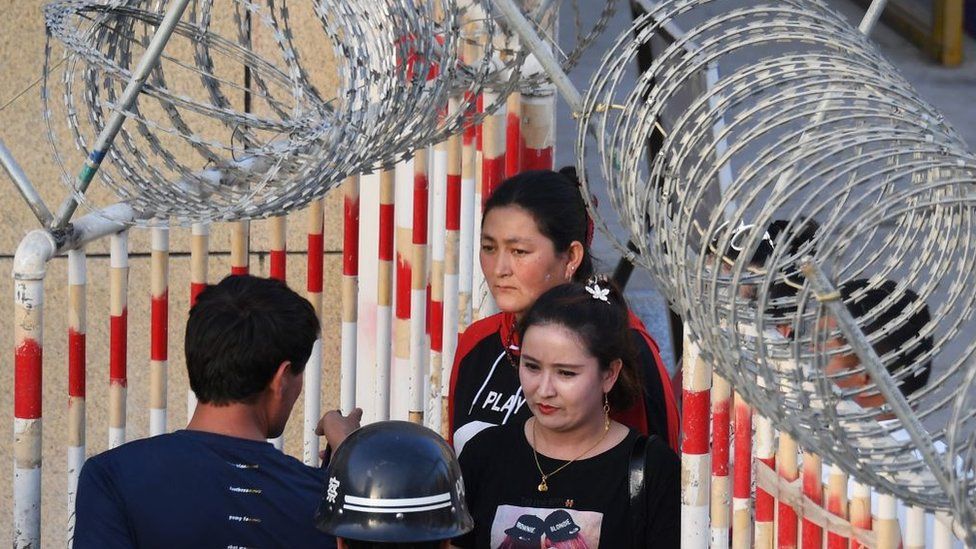
When the officer called again, he asked Alim to attend meetings of Uyghur human rights activists, gather intelligence and pass it back to the Chinese state.
“Whenever there was an anti-China protest in London, they would call me and ask who would be attending,” says Alim, who shared with the BBC recordings of the phone calls requesting he work as a spy.
Alim was offered money, too, so he could try to befriend the leaders of campaign groups – many of them UK citizens – by taking them to restaurants and picking up the bill.
The officer suggested setting up a company as a front, in case suspicions were raised about his newfound wealth. Plenty of businesses had already been set up on behalf of others for that exact purpose, Alim was told.
The implied threat, that his family may come to harm if he refused, has left him in a vicious bind.
“They are using my family as hostages,” Alim says. “I am living in a dark moment.”

Watch more on BBC Newsnight on BBC Two at 22:30 on Monday 31 July, or catch up afterwards on BBC iPlayer

The tactics employed by governments to police their diasporas abroad are known as transnational repression.
Research suggests this particular kind – controlling access to family members in the home country through video calls, in exchange for compliance overseas – is commonly used by Chinese police.
Dr David Tobin at the University of Sheffield has conducted some of the most comprehensive research on the topic to date, with his colleague Nyrola Elimä. They have interviewed and surveyed more than 200 members of the Uyghur diaspora in several countries. He says all Uyghurs living outside China are victims of transnational repression.
“Family separation is the central tactic,” he says. Even where phone calls are technically possible, relatives still living in China won’t pick up, according to Dr Tobin. He says there is an assumption that calls will be monitored, and a fear that communicating freely will put them at risk.
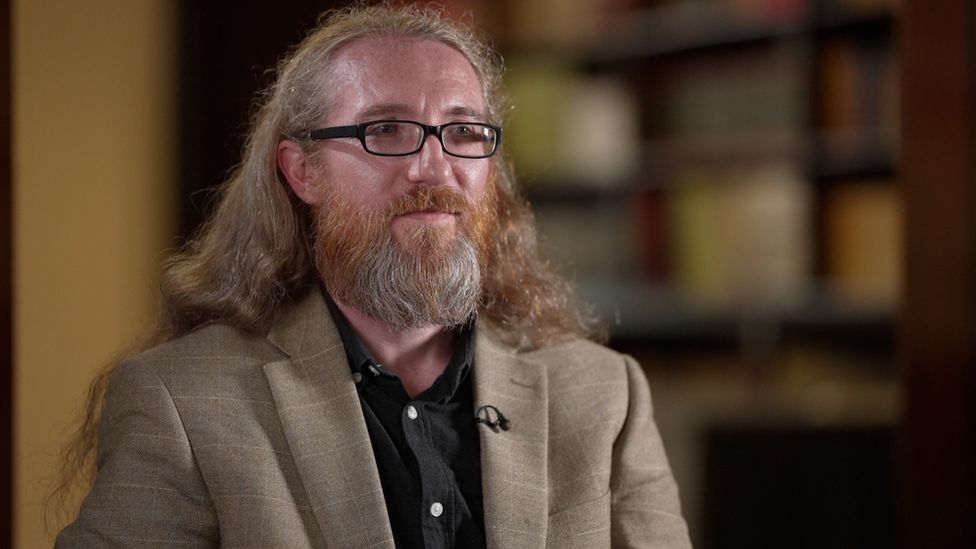
This severing of family ties allows Chinese police to step in and offer tightly managed access – over video calls – as an incentive to comply, with the threat of repercussions for the family if they do not.
In the UK, Dr Tobin surveyed or interviewed 48 Uyghurs, from a population of about 400 people. Of those, two-thirds reported having been contacted directly by Chinese police – and pressured to spy, refrain from advocacy work, or stop speaking to the media.
And Uyghurs in the UK are far from the worst affected.
In Turkey, traditionally a safe haven for Uyghurs where 50,000 live in one of the largest communities outside China, 80% of the 148 of respondents reported similar threats from Chinese authorities.

Abudrehim Paraç arrived in Istanbul in 2014, having fled China a year earlier.
“Turkey was completely different to anything we’d experienced. We could travel wherever we wanted. The police didn’t bother us,” he says. “I couldn’t believe such a life was possible.”
But in the past few years, the picture has changed for Uyghurs in Turkey. Reports that police based in China have pressured people to spy on each other have filtered through the community, splintering their sense of camaraderie.
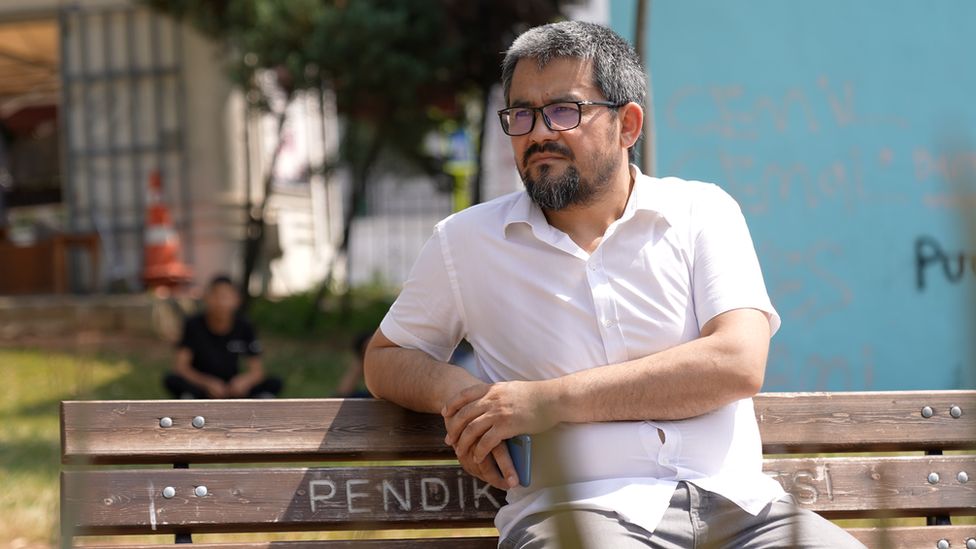
In a video posted on Facebook, a young Uyghur man who appears to have been captured and beaten by his peers, offers a troubled confession – admitting to spying on behalf of Beijing. While the circumstances surrounding the scene are unclear, the footage has been circulated among the Uyghur community, and the man has been widely condemned online.
The accumulation of stories like these is having an effect, Abdurehim says.
“Young people are distancing themselves from Uyghur protests and meetings. They are worried that people there might be spies,” he says. “China’s plan is working.”
Dr Tobin thinks Turkish authorities are aware of what’s happening and have been slow to respond. “The more dependent a country is on investment from China, the more likely it is to cooperate or to turn a blind eye,” he says.
Turkey is seen as having grown closer to China in recent years, and questions have been raised about its commitment to protecting its Uyghur community.
The Turkish government did not respond to a request for comment.

But China is not only targeting people in countries where it has economic supremacy.
Julie Millsap, a US-born activist who works with the Uyghur Human Rights Project in Washington DC, says China has tried to pressure her through her in-laws.
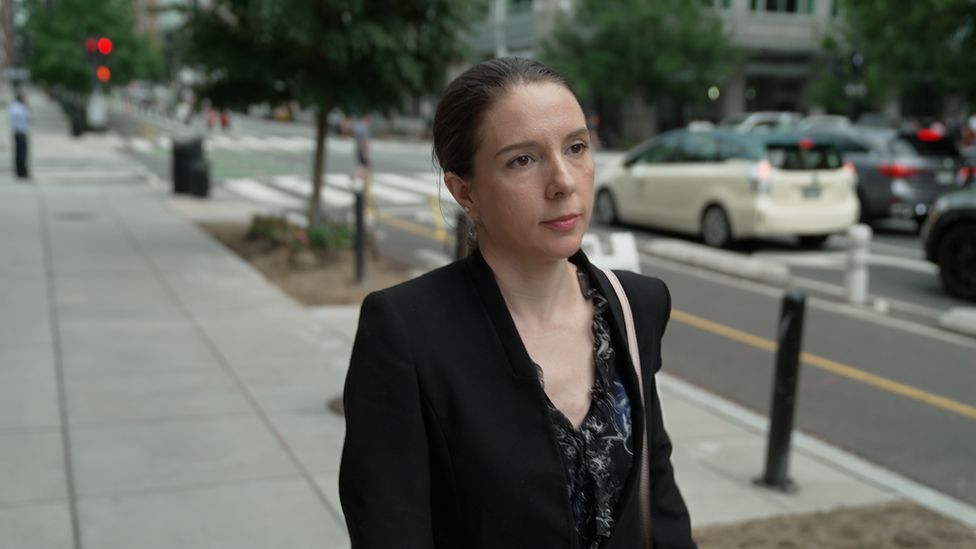
Her husband is Han Chinese, part of the country’s largest ethnic group, and the two met in China before moving to the US capital in 2020.
After Julie began campaigning on behalf of Uyghurs, local police began dropping in on her extended family in China, saying they “wanted to be friends”.
She and her husband received threatening messages from her sister-in-law’s phone, suggesting Julie’s children may end up “as orphans”. “They weren’t written in a language style that she used,” says Julie, who suspects the police were instructing her to send them.
During a recent video call between her husband, in Washington DC, and his sister, in China, the police happened to stop by, allowing Julie to record the moment, and confront one of the officers directly.
“He stammered and asked us not to misinterpret his intentions,” she says. The officer told her police were arranging visits to all local families with US relatives, in light of the “delicate” relationship between the US and China.
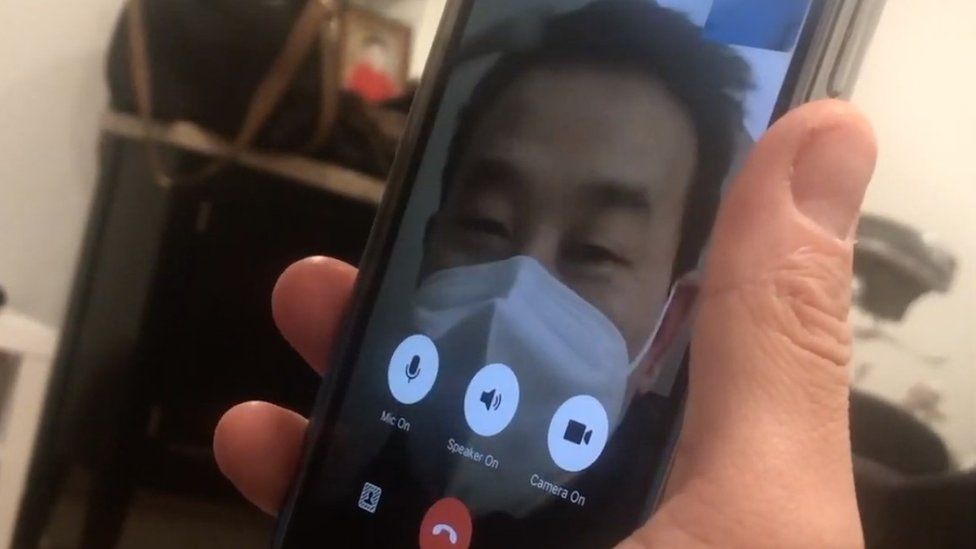
Julie recognises that a white American and a Han Chinese family are afforded a degree of safety that Uyghurs are not. “But we’re still talking about police harassment, about threats, about a daily reality that is anything but good,” she says.
She thinks it is alarming that Chinese authorities feel comfortable targeting foreign citizens and attempting to dictate their work.

The US government is beginning to address the problem formally.
In March, senators introduced the Transnational Repression Policy Act, listing a range of abuses including “coercion by proxy”, which covers threats to family members overseas. If passed, the law would see the creation of a dedicated phone line to report threats, and prompt Congress to bring sanctions against perpetrators wherever possible.
Abduweli Ayup, a Uyghur rights campaigner based in Norway, thinks the US legislation would be a step in the right direction, but that Western governments should go further. Each time a case is reported to the authorities, questions should be lodged directly with the Chinese government, requesting assurance that family members are safe, he says.
“We are your citizens, your neighbours and your taxpayers. Our governments should take some responsibility,” says Mr Ayup.
Dr Tobin recognises the complications inherent in tackling the issue. “Saying ‘would you like to speak to your family?’ isn’t a crime. We know it’s a threat. We know it breaks communities, and causes mental health problems and trauma, but it is not a crime on British soil,” he says.
The UK Home Office says attempts to intimidate overseas critics are “unacceptable”, that an internal review into transnational repression is underway, and all such incidents should be reported to law enforcement.
In a statement, the Chinese Embassy in London called the allegations of transnational repression “totally groundless”. The Chinese government “protects Uyghurs and their communication with overseas relatives in accordance with the law”, it said.
Alim chose not to report his case to the police, but confessed his predicament to a group of Uyghur rights activists in London.
One of the group’s leaders told us the requests were very common, and posed challenges to the integrity of the community – but insisted their advocacy work would continue. In their experience, almost all advances from Chinese police are rejected.
Alim wrestled with the issue before reaching a decision. “I realised that betraying others for the sake of my family would mean selling out my nation, and I couldn’t do that.
“If that was the price I had to pay, so be it.” He too refused China’s offer.
Related Topics
-
-
24 May 2022
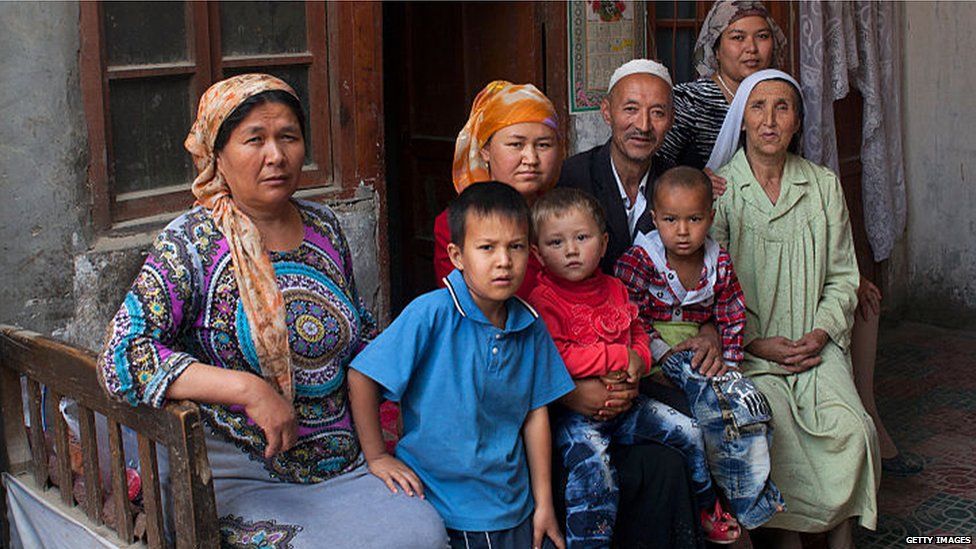
-
-
-
1 September 2022
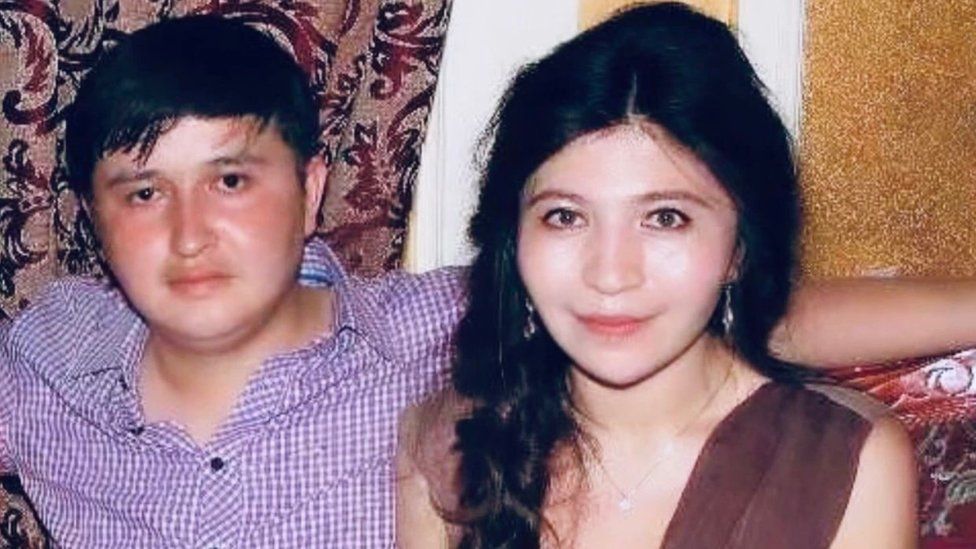
-
-
-
19 March 2021
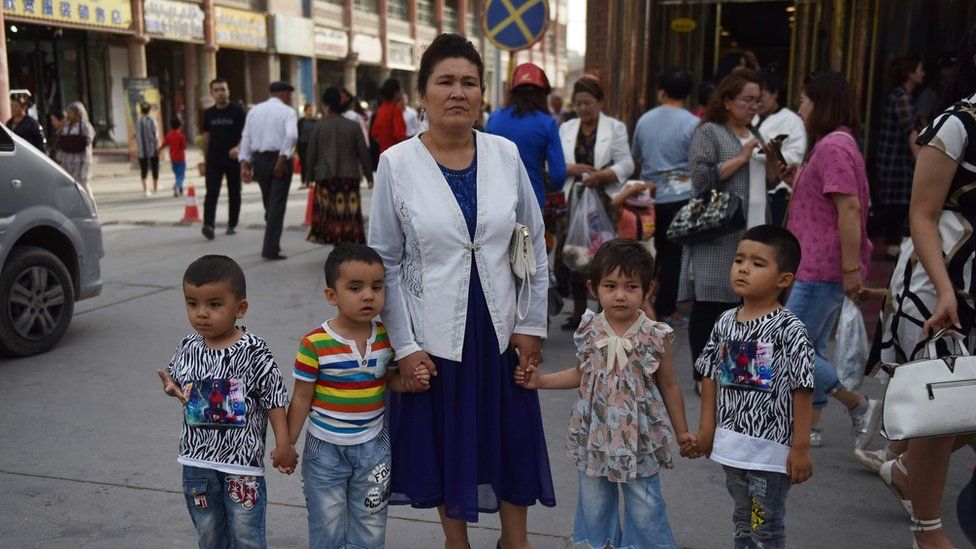
-
Cops prep for Thaksin return plan
PUBLISHED : 31 Jul 2023 at 05:39

Former premier Thaksin Shinawatra’s intention to return to the country after 17 years in self-imposed exile on Aug 10 has not changed, according to sources in the Pheu Thai Party and the Royal Thai Police (RTP).
He is scheduled to arrive at Don Mueang airport that day at 10.30am.
The confirmation came after two critics, Jatuporn Prompan and Chuvit Kamolwisit, insisted they had reasons to believe Thaksin’s return plan was nothing but hot air.
The Pheu Thai Party has been running a series of video clips on its Facebook page chronicling the trials and tribulations associated with Thaksin’s long political career, from his rise to the premiership in 2001 to the ouster of the Pheu Thai Party-led administration by a military coup engineered by the National Council for Peace and Order in 2014.
The clips were uploaded apparently to coincide with Thaksin’s youngest daughter and Pheu Thai Party prime ministerial candidate Paetongtarn Shinawatra’s announcement of her father’s homecoming.
Linthiporn Warinwatchararoj, a party list MP and acting party spokeswoman, on Sunday said the clips were meant to educate the public about Thaksin’s political life.
She said the clips also helped straighten out the facts and tackle disinformation about the controversial businessman and politician.
She denied the clips were an attempt to divert public attention away from the party’s struggle to lead the formation of the new government.
She maintained there was no change of heart among the eight parties, led by the Move Forward Party (MFP), which has given the Pheu Thai Party the task of putting together a new administration.
An RTP source, meanwhile, said Thaksin’s family had notified police of his imminent comeback and preparations were underway on the necessary security measures to handle his arrival.
However, the RTP will be closely monitoring events leading up to Aug 10, including the Aug 3 Constitutional Court announcement of whether it will consider reviewing its earlier decision to bar MFP leader Pita Limjaroenrat from inclusion in a third parliamentary vote for a new prime minister.
If the court drops the petition, parliament can convene a joint sitting the following day to co-elect a new prime minister.
Should a Pheu Thai Party candidate win and lead the successful formation of a government, Thaksin will feel confident about returning home.
Commentary: If you love eating vegetables, why not homegrown greens?
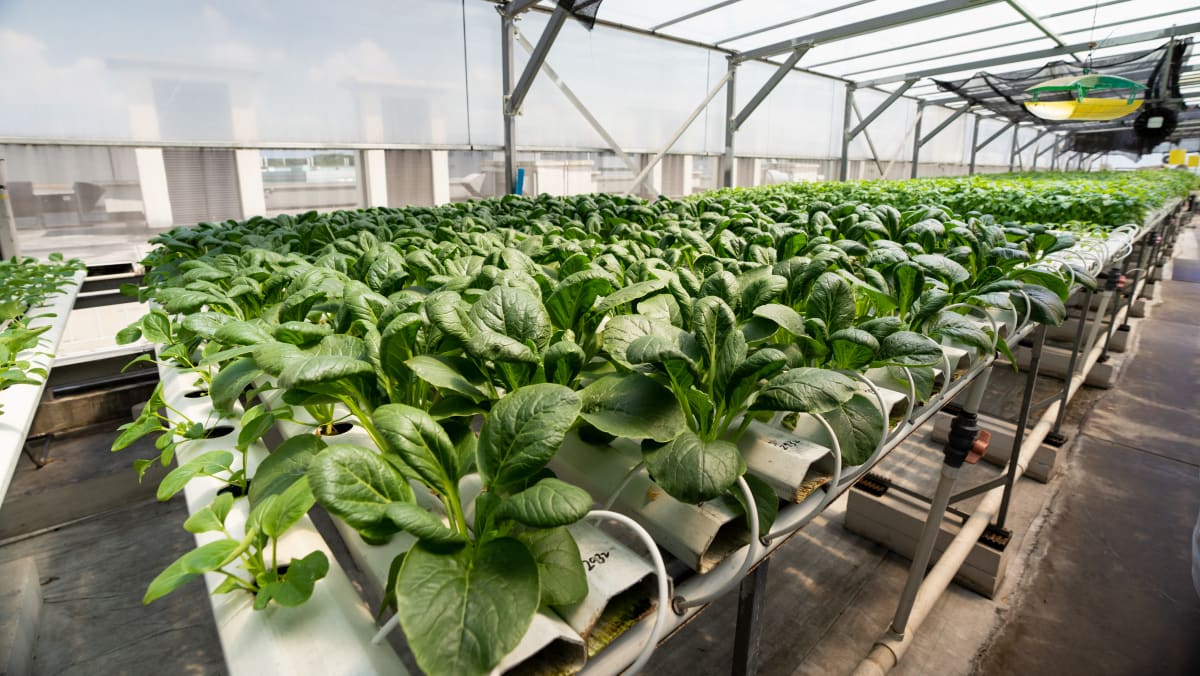
Farming faces a multitude of issues that encompass both environmental and economic concerns. Two significant challenges are emissions and the rising cost of operations.
Besides a few traditional open field farms in Lim Chu Kang, new entrants tend to veer towards rooftop farming, open air vertical farming and indoor farming.
While indoor farming is more tech driven and climate resilient, their operating costs are also much higher, requiring significant investments in machinery and technology.
For example, local farmers have told me that a 200 sq m rooftop farm costs about S$500 per month to operate whereas more than S$7,000 a month is needed for an indoor farm of the same size.
Finding the right trade-off may not be easy. On one hand, traditional open field farms may require less energy and technology. However, costly manpower is needed, and the production yield is lower than indoor farming and heavily dependent on weather conditions.
On the other hand, indoor farms are climate resilient and yield much higher production with fewer manpower needed. However, the operation is far more costly, especially in terms of energy use.
Environmental considerations come to the fore as well. It is estimated that to produce 1,000kg of lettuce, 540kg of CO2 emissions are generated from traditional open field farming. Indoor farms and rooftop vertical farms generate 5,744kg and 158kg of CO2 emissions respectively to produce the same amount of lettuce.
Commentary: Another failed attempt to address Myanmar conflict – whatâs next?
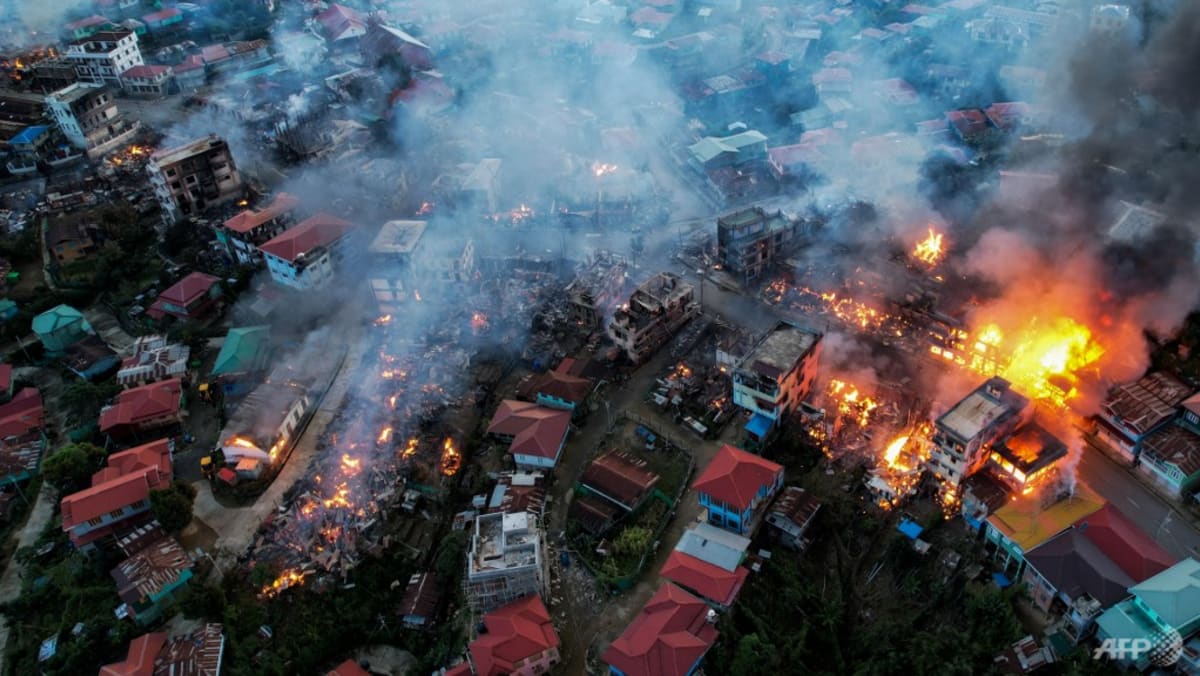
CONTINUOUS FAILURE
Several months after the coup, ASEAN members and the Myanmar junta agreed upon the Five Point Consensus.
This included an immediate end to violence in the country, dialogue among all parties, the appointment of a special envoy, humanitarian assistance by ASEAN and a visit to Myanmar by the envoy to meet with all parties.
This has become the primary reference for ASEAN’s conflict resolution approach in Myanmar.
However, until now, the junta has largely ignored the consensus, leading to a rift within ASEAN over how to further engage the junta.
The four-day high-level conference still resulted in no significant progressing in resolving Myanmar crisis except calling for “inclusive dialogue in Myanmar”. There is no clear time frame and outputs achieved during the conference.
This has raised doubts over the ASEAN’s capability to make visible peace progress in resolving the conflict especially during Indonesia’s time as chair.
Last month, Thailand and Laos held a closed informal meeting with the junta in Thailand to explore “alternative solutions”.
The meeting received mixed receptions from other ASEAN member states. Some accused the Thai government of sabotaging Indonesia’s efforts.
Meanwhile, Myanmar’s opposition group released a statement criticising ASEAN’s “continued” failure to resolve the crisis.
The Big Read: Dealing with infidelity, the ‘cancer’ of marriages
Mrs SL was not convinced by his denials — and his subsequent actions would further erode her trust, such as staying at a hotel with his mistress the Friday after receiving his pay. “When I called (the woman) to confront her, her friend picked up my call and said toContinue Reading

